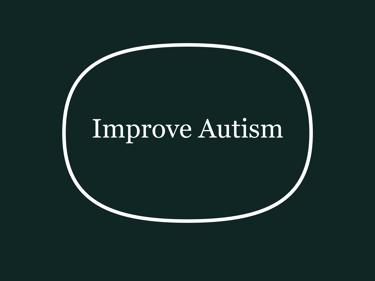Gluten-free Casein free Diet and
Autism Research
A systematic review and meta-analysis of the benefits of a gluten-free diet and/or casein-free diet for children with autism spectrum disorder.
Authors:
Quan, L., Xu, X., Cui, Y., Han, H., Hendren, R.L., Zhao, L. and You, X.
Research study
Year
Type
Study size
Abstract
LINK/DOI
Context: It has been suggested that a gluten-free and casein-free (GFCF) diet may alleviate the symptoms of autism spectrum disorder (ASD) and facilitate neurodevelopment of children with ASD. Studies to date have been inconclusive.
Objective: This study aimed to evaluate (through quantitative meta-analysis) the efficacy and safety of a GFCF diet for children with ASD. To our knowledge, this is the first time such an analysis has been carried out.
Data sources: Eight electronic databases were searched, from the establishment of each database up to March 27, 2020: PubMed, Web of Science, Embase (Ovid), PsycINFO (Ovid), Cochrane Library, CNKI, Wanfang, and VIP databases.
Data extraction: Two authors independently performed the data extraction and risk-of-bias assessment.
Data analysis: A quantitative meta-analysis was performed with standard procedures by using Stata SE 15 software. Within the total of 8 studies, with 297 participants, 5 studies reported significant reductions in stereotypical behaviors [standard mean difference (SMD) = -0.41, 95% confidence interval (CI): -0.68 to -0.15], and 3 studies reported improvements in cognition (SMD = -0.46, 95% CI: -0.91 to -0.01) following GFCF dietary intervention . No statistically significant changes were observed in other symptomatic categories (all P > 0.05).
Conclusion: The current meta-analysis showed that a GFCF diet can reduce stereotypical behaviors and improve the cognition of children with ASD. Though most of the included studies were single-blind, the benefits of a GFCF diet that have been indicated are promising. Additional studies on a larger scale are warranted.
297
Meta-analysis
2022
doi: 10.1093/nutrit/nuab073


Efficacy of gluten- and casein-free diets on autism spectrum disorders in children
Author:
Alamri, E.S
Research study
Year
Type
Study size
Abstract
LINK/DOI
Food containing gluten and casein could play a role in autism spectrum disorders (ASD) symptoms. The present review aimed to update the evidence about the role of the gluten- and casein-free diet (GCFD) on the management of ASD. Web of Science, Science Direct, Google Scholar, and PubMed databases were used to search for randomized controlled trials (RCT) conducted between January 2000 and February 2020. In total, 9 RCT were included (521 participants) with age range between 2 to 18 years. Four of these studies did not show a significant improvement regarding the symptoms of ASD. The rest of these studies (n=5) showed improvement in communication, stereotyped movements, aggressiveness, language, hyperactivity, tantrums, and signs of attention deficit hyperactivity disorder compared to control group. Hence, the data remains insufficient to support the use of GCFD to improve the symptoms of ASD in children.
521
Systematic review
2020
doi: 10.15537/smj.2020.10.25308
Gluten and Autism Spectrum Disorder
Research study
Year
Type
Study size
Abstract
LINK/DOI
An expanding body of literature is examining connections between Autism Spectrum Disorder (ASD) and dietary interventions. While a number of specialist diets have been suggested as beneficial in ASD, gluten has received particularly close attention as a potentially exacerbating factor. Reports exist suggesting a beneficial effect of the gluten-free diet (GFD) in ameliorating behavioural and intellectual problems associated with ASD, while epidemiological research has also shown a comorbidity between ASD and coeliac disease. However, both caregivers and clinicians have expressed an uncertainty of the value of people with ASD going gluten-free, and as the GFD otherwise receives considerable public attention a discussion which focuses specifically on the interaction between ASD and gluten is warranted. In this review we discuss the historical context of ASD and gluten-related studies, and expand this to include an overview of epidemiological links, hypotheses of shared pathological mechanisms, and ultimately the evidence around the use and adoption of the GFD in people with ASD.
Not specified
Review
2021
doi: 10.3390/nu13020572
Impact of Gluten-Free and Casein-Free Diet on Behavioural Outcomes and Quality of Life of Autistic Children and Adolescents: A Scoping Review
Research study
Year
Type
Study size
Abstract
LINK/DOI
Background: Gluten- and casein-containing foods could aggravate the symptoms of children and adolescents with autism spectrum disorder (ASD), and subsequently impact their quality of life. However, there is a mixed opinion among researchers concerning the impact of alternative diet on reducing ASD symptoms.
Objective: This scoping review aimed at examining the impact of the "gluten-free, casein-free" (GFCF) diet on health outcomes and the quality of life among autistic children and adolescents.
Methods: A scoping review of the literature was performed following the Joanna Briggs Institute (JBI) guidelines. Four databases, including EbscoHost, Medline, CINAHL, and ProQuest, were used to obtain subject-specific studies relevant to the research question and published between July 2013 and March 2024. A comprehensive search using keywords such as "autism spectrum disorder", "gluten-free diet", and "casein-free diet" was conducted to obtain articles related to the research focus area. Only full-text, peer-reviewed, written in English articles were selected. Data extraction and data analysis were performed according to the Preferred Reporting Items for Systematic Reviews and Meta-Analyses-extension to Scoping Review (PRISMA-ScR) protocol.
Results: From the initial 586 studies, a total of 27 articles were included in the final analysis of the review. The thematic analysis included "GFCF diet and improvement of the core autistic symptoms", "the gut-brain link", "dietary interventions and autism", "possible side effects due to the GCFC diet", and "inconclusive studies and mixed opinions". A majority of the studies showed a positive effect of the GFCF diet on a variety of autistic symptoms, including positive changes in cognitive skills, behaviour, and gastrointestinal symptoms, while some showed conflicting evidence.
Conclusions: The currently available evidence on the impact of the "GFCF" diet on the quality of life of autistic children and adolescents may warrant potentially effective interventions for alleviating symptoms of autism spectrum disorders. However, this scoping review highlights the need for more research to provide more reliable evidence on the health outcomes and quality of life of ASD sufferers to guide practice.
Not specified
Scoping review
2024
doi: 10.3390/children11070862
Effect of gluten free diet on gastrointestinal and behavioral indices for children with autism spectrum disorders: a randomized clinical trial
Authors:
Ghalichi, F., Ghaemmaghami, J., Malek, A. and Ostadrahimi, A.
Research study
Year
Type
Study size
Abstract
LINK/DOI
Background:
Genetic and environmental factors are both responsible for the etiology of autism spectrum disorders (ASD). Although epidemiological studies have been conducted to clarify the association between restriction diets and ASD, the conclusion remains unclear. This study was undertaken to investigate the effect of gluten free diet (GFD) on gastrointestinal symptoms and behavioral indices in children with ASD.
Methods:
In this randomized clinical trial, 80 children diagnosed with ASD by the Autism Diagnostic Interview-Revised (ADI-R) were assigned into GFD (n=40) and regular diet (RD) (n=40) groups for 6 weeks. At the beginning and end of the intervention, the ROME Ш questionnaire for evaluating gastrointestinal symptoms and Gilliam Autism Rating Scale 2 questionnaire (GARS-2) for assessing psychometric properties were completed.
Results:
Of the 80 children, 53.9% had gastrointestinal abnormalities. In the GFD group, the prevalence of gastrointestinal symptoms decreased significantly (P<0.05) after intake of GFD (40.57% vs. 17.10%) but increased insignificantly in the RD group (42.45% vs. 44.05%). GFD intervention resulted in a significant decrease in behavioral disorders (80.03±14.07 vs. 75.82±15.37, P<0.05) but an insignificant increase in the RD group (79.92±15.49 vs. 80.92±16.24).
Conclusion:
This study suggested that GFD may be effective in controlling gastrointestinal symptoms and ASD behaviors.
Not specified
Randomise controlled trial
2016
doi: 10.1007/s12519-016-0040-z
Gluten-Free Diet in Children with Autism Spectrum Disorders: A Randomized, Controlled, Single-Blinded Trial
Authors:
Piwowarczyk, A., Horvath, A., Pisula, E., Kawa, R. and Szajewska, H.
Research study
Year
Type
Study size
Abstract
LINK/DOI
To determine whether a gluten-free diet (GFD) compared with a gluten-containing diet (GD) influences functioning of children with autism spectrum disorders (ASD), we performed a randomized, controlled, single-blinded trial. Sixty-six children (36-69 months) with ASD, within the normal IQ (> 70) range, who had been on a GFD for at least 8 weeks before enrollment were eligible for inclusion. After an 8-week run-in period on a GFD, the GFD group continued this diet and the GD group consumed at least one normal meal containing gluten per day for 6 months. There were no differences between groups in autistic symptoms, maladaptive behaviors, or intellectual abilities after the intervention. A GFD compared with a GD did not affect functioning of children with ASD.
66
Randomise controlled trial
Single blinded
2020
doi: 10.1007/s10803-019-04266-9
The Gluten-Free/Casein-Free Diet: A Double-Blind Challenge Trial in Children with Autism
Authors:
Hyman, S.L., Stewart, P.A., Foley, J., Cain, U., Peck, R., Morris, D.D., Wang, H. and Smith, T
Research study
Year
Type
Study size
Abstract
LINK/DOI
To obtain information on the safety and efficacy of the gluten-free/casein-free (GFCF) diet, we placed 14 children with autism, age 3-5 years, on the diet for 4-6 weeks and then conducted a double-blind, placebo-controlled challenge study for 12 weeks while continuing the diet, with a 12-week follow-up. Dietary challenges were delivered via weekly snacks that contained gluten, casein, gluten and casein, or placebo. With nutritional counseling, the diet was safe and well-tolerated. However, dietary challenges did not have statistically significant effects on measures of physiologic functioning, behavior problems, or autism symptoms. Although these findings must be interpreted with caution because of the small sample size, the study does not provide evidence to support general use of the GFCF diet.
14
Double-blind placebo controlled trial
2015
doi: 10.1007/s10803-015-2564-9
The ScanBrit randomised, controlled, singleblind study of a gluten- and casein-free dietary intervention for children with autism spectrum disorders
Authors:
Whiteley, P., Haracopos, D., Knivsberg, A.M., Reichelt, K.L., Parlar, S., Jacobsen, J., Seim, A., Pedersen, L., Schondel, M. and Shattock, P.
Research study
Year
Type
Study size
Abstract
LINK/DOI
There is increasing interest in the use of gluten- and casein-free diets for children with autism spectrum disorders (ASDs). We report results from a two-stage, 24-month, randomised, controlled trial incorporating an adaptive 'catch-up' design and interim analysis. Stage 1 of the trial saw 72 Danish children (aged 4 years to 10 years 11 months) assigned to diet (A) or non-diet (B) groups by stratified randomisation. Autism Diagnostic Observation Schedule (ADOS) and the Gilliam Autism Rating Scale (GARS) were used to assess core autism behaviours, Vineland Adaptive Behaviour Scales (VABS) to ascertain developmental level, and Attention-Deficit Hyperactivity Disorder - IV scale (ADHD-IV) to determine inattention and hyperactivity. Participants were tested at baseline, 8, and 12 months. Based on per protocol repeated measures analysis, data for 26 diet children and 29 controls were available at 12 months. At this point, there was a significant improvement to mean diet group scores (time*treatment interaction) on sub-domains of ADOS, GARS and ADHD-IV measures. Surpassing of predefined statistical thresholds as evidence of improvement in group A at 12 months sanctioned the re-assignment of group B participants to active dietary treatment. Stage 2 data for 18 group A and 17 group B participants were available at 24 months. Multiple scenario analysis based on inter- and intra-group comparisons showed some evidence of sustained clinical group improvements although possibly indicative of a plateau effect for intervention. Our results suggest that dietary intervention may positively affect developmental outcome for some children diagnosed with ASD. In the absence of a placebo condition to the current investigation, we are, however, unable to disqualify potential effects derived from intervention outside of dietary changes. Further studies are required to ascertain potential best- and non-responders to intervention.
72
Research article
2010
doi: 10.1179/147683010X12611460763922


